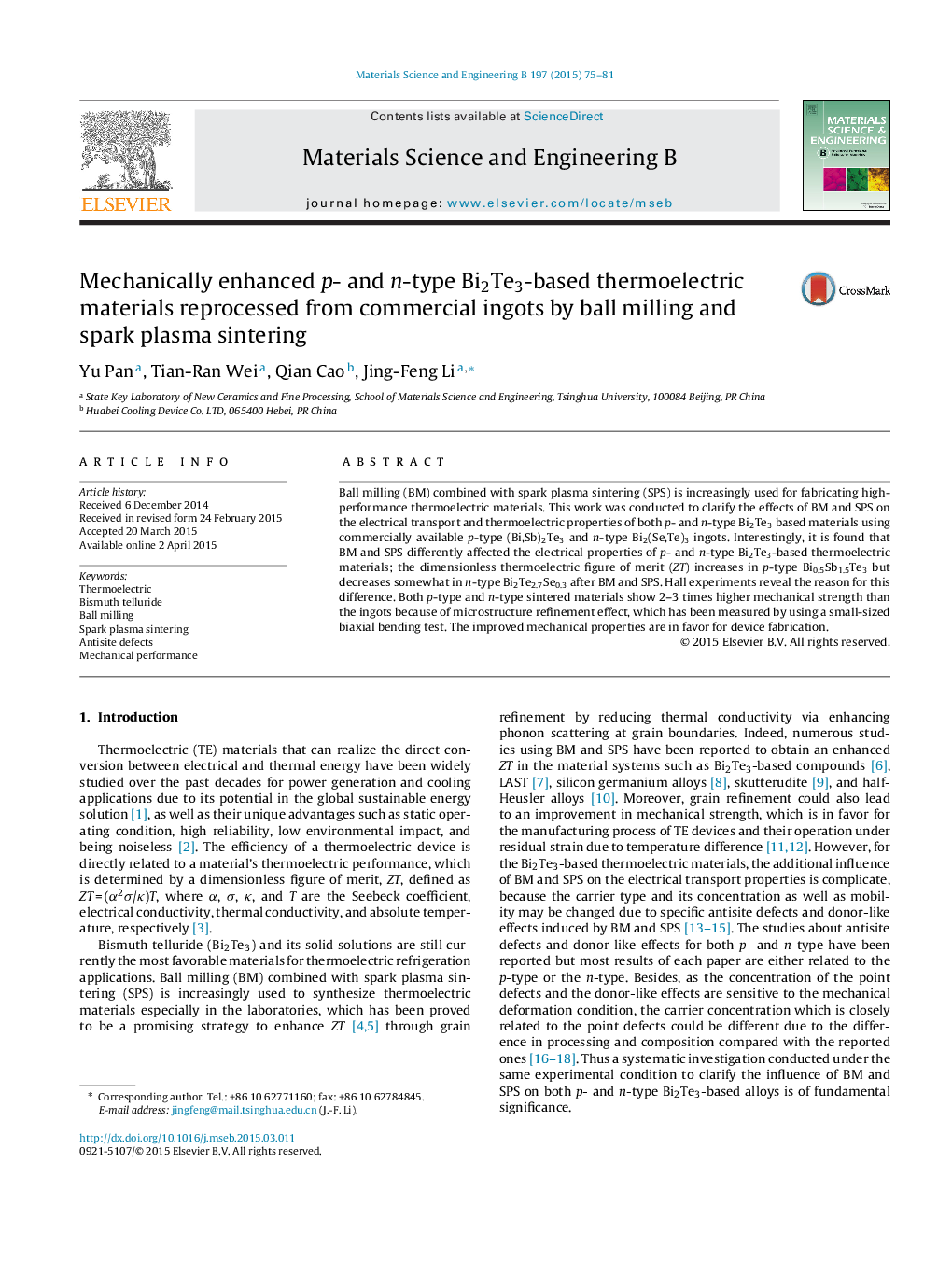| Article ID | Journal | Published Year | Pages | File Type |
|---|---|---|---|---|
| 1528567 | Materials Science and Engineering: B | 2015 | 7 Pages |
Abstract
Ball milling (BM) combined with spark plasma sintering (SPS) is increasingly used for fabricating high-performance thermoelectric materials. This work was conducted to clarify the effects of BM and SPS on the electrical transport and thermoelectric properties of both p- and n-type Bi2Te3 based materials using commercially available p-type (Bi,Sb)2Te3 and n-type Bi2(Se,Te)3 ingots. Interestingly, it is found that BM and SPS differently affected the electrical properties of p- and n-type Bi2Te3-based thermoelectric materials; the dimensionless thermoelectric figure of merit (ZT) increases in p-type Bi0.5Sb1.5Te3 but decreases somewhat in n-type Bi2Te2.7Se0.3 after BM and SPS. Hall experiments reveal the reason for this difference. Both p-type and n-type sintered materials show 2-3 times higher mechanical strength than the ingots because of microstructure refinement effect, which has been measured by using a small-sized biaxial bending test. The improved mechanical properties are in favor for device fabrication.
Keywords
Related Topics
Physical Sciences and Engineering
Materials Science
Electronic, Optical and Magnetic Materials
Authors
Yu Pan, Tian-Ran Wei, Qian Cao, Jing-Feng Li,
